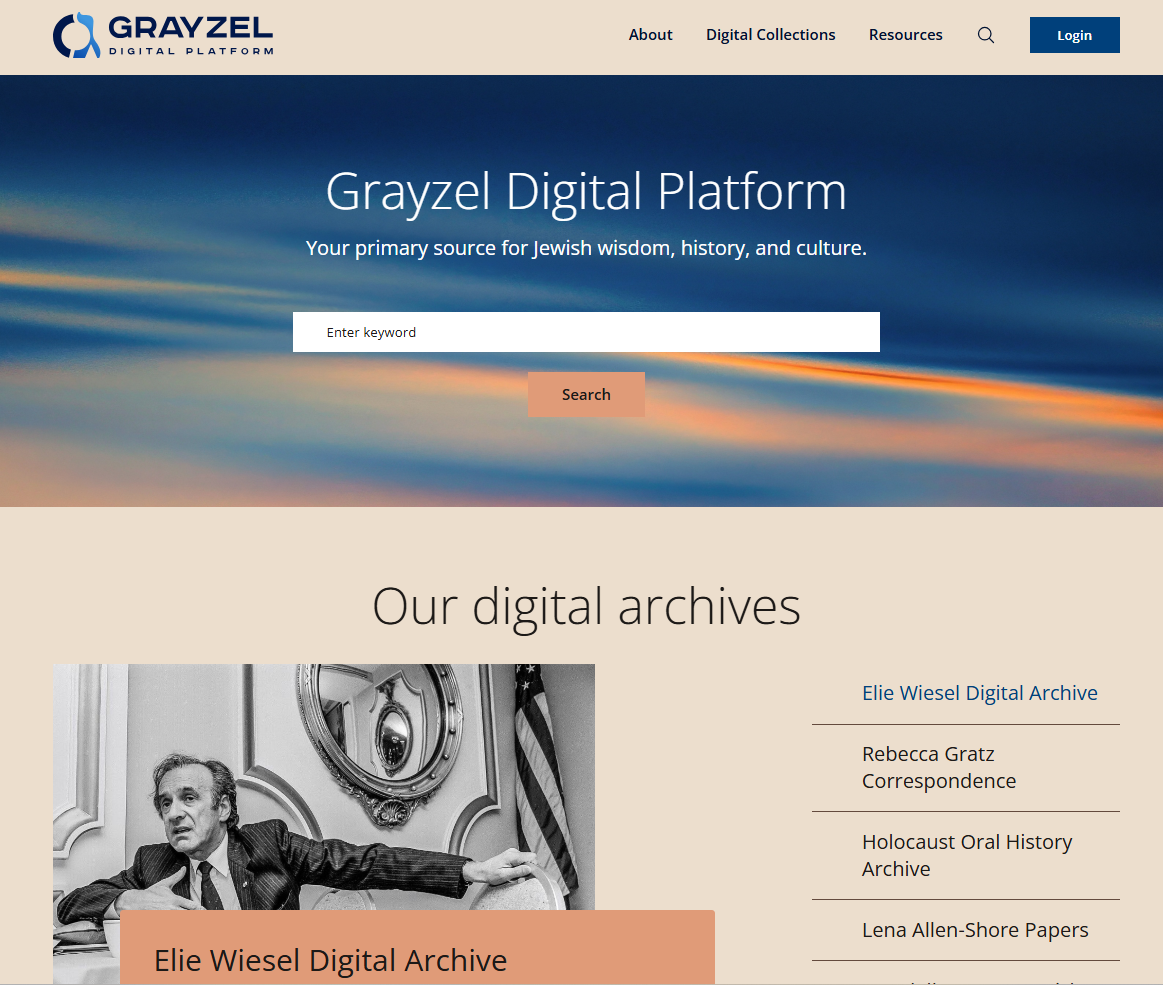In December 2023, Andrés Spokoiny called for Jewish educators to get ahead of the AI revolution. Figured Spokoiny, president of the Jewish Funders Network, the Digital Age offers an opportunity to solve several ills facing the American Jewish community. Top among them is the dearth of Jewish literacy and its deleterious impact on Jewish content. “In a community with low Jewish literacy,” wrote Spokoiny, “the focus is on low entry barriers to Jewish engagement.”
He’s right. Without the heft and depth of Jewish learning, agencies cannot focus on content; they tend, instead, to rely on ancillary, trite materials. Spokoiny is likewise correct that the Jewish education sector is ready to engage this challenge. Gratz College, where I help lead, is one of several organizations prepared to address the challenge of Jewish literacy.
Historical Precedents
Spokoiny’s insight strikes a historical chord. In the 1920s, for example, Franz Rosenzweig launched a “return to the sources” movement. The German Jewish philosopher desired a tabula rasa to reset Jewish conversations and restart Jewish thinking. He believed that the university-trained Jewish scholars of the prior generation had focused too much on academic history. They had buried the “spirit” of Jewish tradition. “I have consciously moved the sources to the center,” wrote Rosenzweig to a family member, “and history to the periphery.”
The reasoning that ran through Rosensweig’s efforts was matched in earlier epochs. In the twelfth century, Moses Maimonides, laser focused on the teachings of the Talmud, was eager to jettison much of the work of the post-Talmudic writers—the Babylonian Geonim—in his quest to produce the world’s first code of Jewish law. Some six hundred years later, the founders of the Lithuanian yeshiva movement and the pioneers of Haskalah, the Jewish Enlightenment, did not agree on much. However, both groups concurred that their communities were far too saturated with books that dealt with matters best left on the margins. Instead, they pushed Jews to zero in on the Talmud and the Bible.
The Current Challenge
Today, we are faced with a similar challenge. It’s related to Spokoiny’s call to action.
We lack resources to identify and utilize Jewish sources. Where to turn? The Internet is a massive “data dump” of far too much information. It has weakened our collective understanding of what’s good and what’s less-than-good content. Jewish educators require a powerful tool to pluck the foremost of Jewish wisdom. We need an innovative, moonshot-like bet on empowering our educator-students with content.
The exception that proves the rule is Sefaria, a vast digital library of traditional Jewish texts on a trusted web platform. But what of other areas of Jewish learning?
There’s a significant opportunity. Jewish educators, we know, don’t like textbooks. In other fields, math and science teachers have access to dozens of evidence-based curricula. There are a number of these in Jewish education, but not enough. And they likely do not pass Spokoiny’s low-barrier content test.
Gratz's “Grayzel” Moonshot
Gratz College is determined to support Jewish educators and improve Jewish literacy. Our goal is to democratize Jewish learning through a modular database full of texts, images, videos, and sounds that capture the complexities of the Jewish experience in the modern world. Foremost, in our work, is the Grayzel Digital Platform. We launched the site on November 6, 2025, as part of World Digital Preservation Day. The online platform aims to deepen access to Jewish texts and wisdom in an easy-to-use format.
Grayzel’s inaugural marquee collections include the Elie Wiesel Digital Archive and the Rebecca Gratz Correspondence. The second phase will digitize many agency records with a focus on Jewish culture and education. Grayzel will also partner with the innovative leaders of Lightning Studios AI to create an AI “chevruta” learning application that makes Jewish learning personal, conversational, and meaningfully challenging at any level.
We encourage you to visit the Grayzel Digital Platform and watch the Grayzel video trailer below:
The Path Forward
There’s more work ahead—for all of us. We’ll need, as Rosenzweig understood it, fresh new content to reset Jewish conversations and restart Jewish thinking on a host of subjects like antisemitism and Jewish-Diaspora relations, to name a few. With rich content in our repositories, our community will get ahead of the present AI revolution. We’ll be poised to leverage it with the various best forms of Jewish education.


